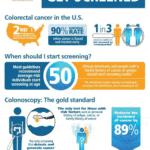If you've been experiencing persistent abdominal discomfort, irregular bowel habits, fatigue, or unexplained weight fluctuations, it's crucial to consult a healthcare professional. These symptoms could potentially indicate the presence of an inflammatory bowel disease (IBD) such as ulcerative colitis or Crohn's disease.
Ulcerative Colitis vs. Crohn's Disease: understanding the differences
While both conditions share some similarities, they differ in several key aspects. Understanding these distinctions is vital for accurate diagnosis and effective management. This article provides essential insights into the differences between Crohn's disease and ulcerative colitis (UC), as well as differences and similarities in treatment approaches, including surgical options and dietary modifications.
Inflammatory Bowel Diseases: An Overview
Inflammatory Bowel Diseases (IBD) are chronic inflammatory conditions that primarily affect the gastrointestinal tract. Crohn's disease and ulcerative colitis are the two main types of IBDs. In both cases, the body's immune system mistakenly attacks healthy tissue, leading to inflammation and subsequent complications.
Common symptoms of IBD include abdominal pain, diarrhea, rectal bleeding, fatigue, and weight loss. IBD is believed to result from a combination of genetic, environmental, and immune system factors. Treatment typically involves medications to reduce inflammation, manage symptoms, and in some cases, surgery may be necessary to address complications or severe disease.
Ulcerative Colitis: Localized Inflammation
Ulcerative colitis is characterized by inflammation confined to the innermost lining of the colon (large intestine) and rectum. This inflammation can extend continuously along the length of the colon, causing ulcers and bleeding. Symptoms may include:
- Frequent and urgent bowel movements
- Bloody diarrhea
- Abdominal cramps and pain
- Fatigue and weight loss
The severity of ulcerative colitis can range from mild to severe, with periods of remission and flare-ups.
Crohn's Disease: Widespread Inflammation
In contrast, Crohn's disease can affect any part of the GI tract, from the mouth to the anus. The inflammation in Crohn's disease is often patchy, with healthy tissue interspersed between inflamed areas. Common symptoms include:
- Abdominal pain and cramping
- Diarrhea (which may be bloody)
- Fatigue and weakness
- Unintended weight loss
- Loss of appetite
Unlike ulcerative colitis, Crohn's disease can penetrate deeper into the layers of the intestinal wall, potentially leading to complications such as fistulas (abnormal connections between organs) or strictures (narrowing of the intestine).
Diagnostic Approaches to IBD
Diagnosing Crohn's disease or ulcerative colitis often involves a combination of tests and procedures, including:
- Blood tests to detect inflammation markers
- Stool tests to rule out infections
- Endoscopic procedures (colonoscopy or upper endoscopy) to visualize the GI tract
- Imaging tests (CT scans, MRI, or X-rays) to assess the extent and location of inflammation
How can doctors tell Crohn’s disease from Ulcerative Colitis?
Doctors differentiate between Crohn's disease and ulcerative colitis based on the pattern and location of inflammation in the digestive tract. Crohn's disease can affect any part of the digestive tract and may involve patches of healthy tissue between inflamed areas, while ulcerative colitis typically involves continuous inflammation limited to the colon and rectum.
Endoscopic findings, biopsy results, and imaging studies help confirm the diagnosis by identifying characteristic features of each condition.
Early and accurate diagnosis is crucial for initiating appropriate treatment and minimizing potential complications, so if you are experiencing symptoms consistent with either condition, you should contact a specialist for consultation.
Treatment Options
While there is currently no cure for either ulcerative colitis or Crohn's disease, various treatment strategies can help manage symptoms, induce remission, and improve quality of life. These include:
Medication for Crohn’s Disease
Medication for Crohn's disease plays a crucial role in managing symptoms and reducing inflammation, but it's essential to consult a doctor before starting or changing any treatment regimen.
Because Crohn's is a complex condition with varying symptoms and disease patterns among individuals, the most effective medication and dosage can differ from person to person. A doctor can assess your specific situation, including the severity of your symptoms, potential complications, and other factors such as existing health conditions or medications.
The following medications are used to treat Crohn’s disease:
- Aminosalicylates to reduce inflammation
- Corticosteroids for short-term relief during flare-ups
- Immunomodulators to suppress the immune system
- Biologic therapies targeting specific inflammatory pathways
- Antibiotics to reduce inflammation and control bacterial populations in the gut
Dietary Modifications to manage Crohn’s
Dietary modifications can play a significant role in managing Crohn's disease by helping to alleviate symptoms and reduce inflammation. While there is no one-size-fits-all approach, several dietary strategies may be beneficial for individuals with Crohn's:
- Exclusive enteral nutrition (liquid diet): Promotes bowel rest, reduces inflammation, and induces remission.
- Low FODMAP or low-residue diets: Reduces bloating, gas, and diarrhea.
- Supplementation to address nutrient deficiencies: Corrects deficiencies caused by malabsorption or dietary restrictions.
- Elimination Diet: Identifies and eliminates trigger foods to alleviate symptoms and reduce inflammation.
- Probiotics: Restores balance to the gut microbiome and reduces inflammation.
- Nutrient-Rich Foods: Supports overall health and provides essential nutrients.
- Hydration: Maintains hydration levels, especially during flare-ups or episodes of diarrhea.
Consult a healthcare professional before starting any Crohn's disease diet. They can provide personalized guidance on the most appropriate dietary approach, including when and for how long to follow specific restrictions, based on your individual needs and medical history.
Medication for Ulcerative Colitis
The medications commonly used to treat ulcerative colitis (UC) often overlap with those used to treat Crohn's disease due to the shared goal of reducing inflammation in the digestive tract. However, the location and pattern of inflammation in UC, typically limited to the colon and rectum, may influence the choice of medications.
The following medications are used to treat Ulcerative Colitis:
- Aminosalicylates: Reduce inflammation in the colon.
- Corticosteroids: Control inflammation and symptoms during flare-ups.
- Immunomodulators: Suppress the immune system.
- Biologics: Target specific inflammatory proteins.
- JAK Inhibitors: Block enzymes involved in inflammation.
- Antibiotics: Treat bacterial complications.
- Symptomatic Relief Medications: Manage symptoms like diarrhea, pain, and anemia.
Dietary Modifications to manage Ulcerative Colitis
Dietary modifications can play a significant role in managing ulcerative colitis (UC) Because both UC and Crohn's disease both involve inflammation and digestive symptoms, dietary modifications for one condition can often be beneficial for the other. Therefore, similar dietary strategies are often used to treat both conditions:
- Low-Residue Diet
- Low-FODMAP Diet
- Elimination Diet
- Probiotics
- Nutrient-Rich Foods
- Hydration
Diets for ulcerative colitis (UC) may be prescribed at various points in the treatment process, depending on the individual's symptoms and disease activity. It's crucial to consult with a healthcare specialist before starting dietary modifications.
Handling severe cases: surgery for Crohn’s and Ulcerative Colitis
In severe cases or when medications fail to provide adequate relief, surgery may be recommended. The specific procedure depends on the extent and location of the disease, as well as the presence of complications.
Surgery for Ulcerative Colitis
For ulcerative colitis, surgical options may include:
- colectomy (removal of the colon)
- proctocolectomy (removal of the colon and rectum) with the creation of an ileostomy or ileal pouch-anal anastomosis.
Surgery for Crohn’s Disease
For Crohn's disease, surgical interventions may involve:
- resection (removal of the affected intestinal segment)
- strictureplasty (widening of a narrowed intestinal section).
Complementary and Alternative Therapies
Some patients may explore complementary and alternative medicine (CAM) approaches alongside conventional treatments. However, it's essential to discuss these options with healthcare professionals to ensure safety and avoid potential interactions or adverse effects.
Living with IBD: Managing Ulcerative Colitis and Crohn's
While IBD can present challenges, many individuals with ulcerative colitis or Crohn's disease lead fulfilling lives by adopting a proactive approach to managing their condition. This may involve:
- Adhering to prescribed treatment regimens
- Maintaining a balanced and nutrient-rich diet
- Engaging in regular physical activity
- Seeking psychological support to cope with the emotional aspects of living with a chronic illness
- Joining support groups or connecting with others who share similar experiences
With proper medical care, lifestyle modifications, and a strong support system, individuals with IBD can effectively manage their symptoms and maintain a high quality of life.
Conclusion: The Difference Between Crohn's Disease and Ulcerative Colitis
Ulcerative colitis and Crohn's disease, while both classified as inflammatory bowel diseases, exhibit distinct characteristics in terms of the location and nature of inflammation, symptoms, diagnostic approaches, and treatment strategies. Understanding these differences is crucial for healthcare professionals to provide accurate diagnoses and tailored treatment plans.
If you are experienced symptoms of IBD, Northeast Digestive can help you diagnose and manage your condition to maintain a fulfilling lifestyle. Early diagnosis allows for prompt intervention and significantly improves long-term outcomes, so do not hesitate to schedule and appointment as soon as possible.



